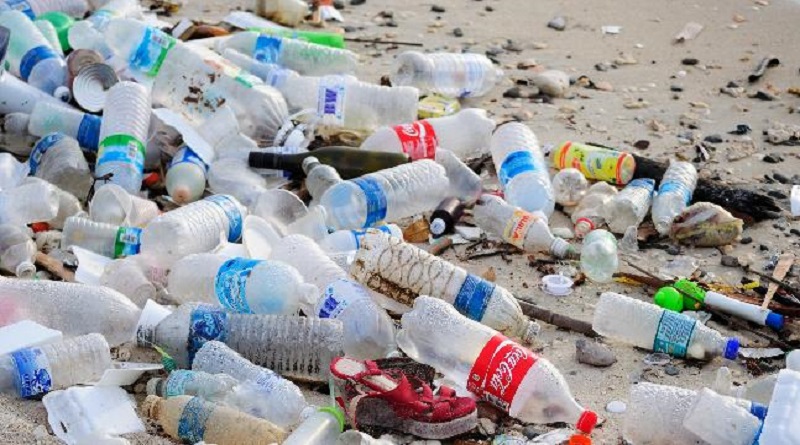Plastics and human health: Hormone health risks under spotlight
Bluewater, a world leader in drinking water technologies and solutions for homes, commercial operations and public dispensers, on Tuesday February 18, 2019 published a white paper jointly with Portugal’s leading science-led Mirpuri Foundation detailing how plastics pollution may be having a profound impact on the health and wellbeing of people around the planet.
The white paper – entitled ‘The Global Plastic Calamity’ – details how the unmitigated pollution of the planet’s oceans, land, and air by throwaway plastic that is breaking down into microplastic particles found increasingly in the water we drink and the food we eat is releasing thousands of hormone-disrupting chemicals that are believed to be behind a worrying rise in multiple illnesses.
“There is now solid scientific evidence that so-called endocrine disrupting chemicals, or EDC’s, now commonplace in the natural environment as a result of plastic pollution, are blocking the natural function of hormones,” said Dr Ivone Mirpuri, one of Europe’s leading specialists in hormonal modulation – how hormones play a pivotal role in regulating the body’s systems.
Dr. Mirpuri described EDC’s as the ‘No1 threat’ to humankind on an extinction level as they are now pervasively found in the food we eat and the tap and bottled water we drink and wash with.
She added that her research and observations as a hormonal modulation specialist has confirmed that chemicals in plastic have triggered rising levels of abnormal development and illnesses over the past five decades, ranging from stunted fertility and male/female sex malformations to obesity, diabetes, cancer, heart attacks and cognitive, behavioral and other brain-related problems such as Attention Deficit Hyperactivity (ADH).
“The United Nations says the unmitigated use of plastics has put the planet on ‘the edge of a global plastic calamity’. And it is clear from the research spotlighted in the White Paper that by messing with human hormones we are messing with the health and wellbeing of all living creatures,” said Bluewater CEO and founder Bengt Rittri, a leading environmental entrepreneur.
Mr. Rittri founded Bluewater in 2013 with the mission to deliver pure water to everyone in a sustainable way that ended the need for single-use plastic bottles and their polluting transportation over long distances. In a call for action, Bengt Rittri added: “For the sake of human and planetary health we need as individuals to cut our consumption of single-use plastics from packaging to bottles or face the worst of outcomes for future generations.”
Hormones control every function in our body. This includes blood pressure, heartbeat, blood sugar, fertility, immune function, mood and emotions, quality of sleep, body water content among others. There are more than 85,000 manufactured chemicals, of which thousands may be EDCs found in plastics and other consumer products. Another group of chemicals linked to hormone disruption, phthalates, are found in personal care products such as cosmetics, children’s products, food packaging and medical tubing.
A study by a research team at US lobbying group Orb Media found ‘a single bottle can hold dozens or possibly even thousands of microscopic plastic particles.’ Tests by Orb Media on more than 250 bottles from 11 brands reveal contamination by plastics such as polypropylene, nylon, and polyethylene terephthalate (PET).




